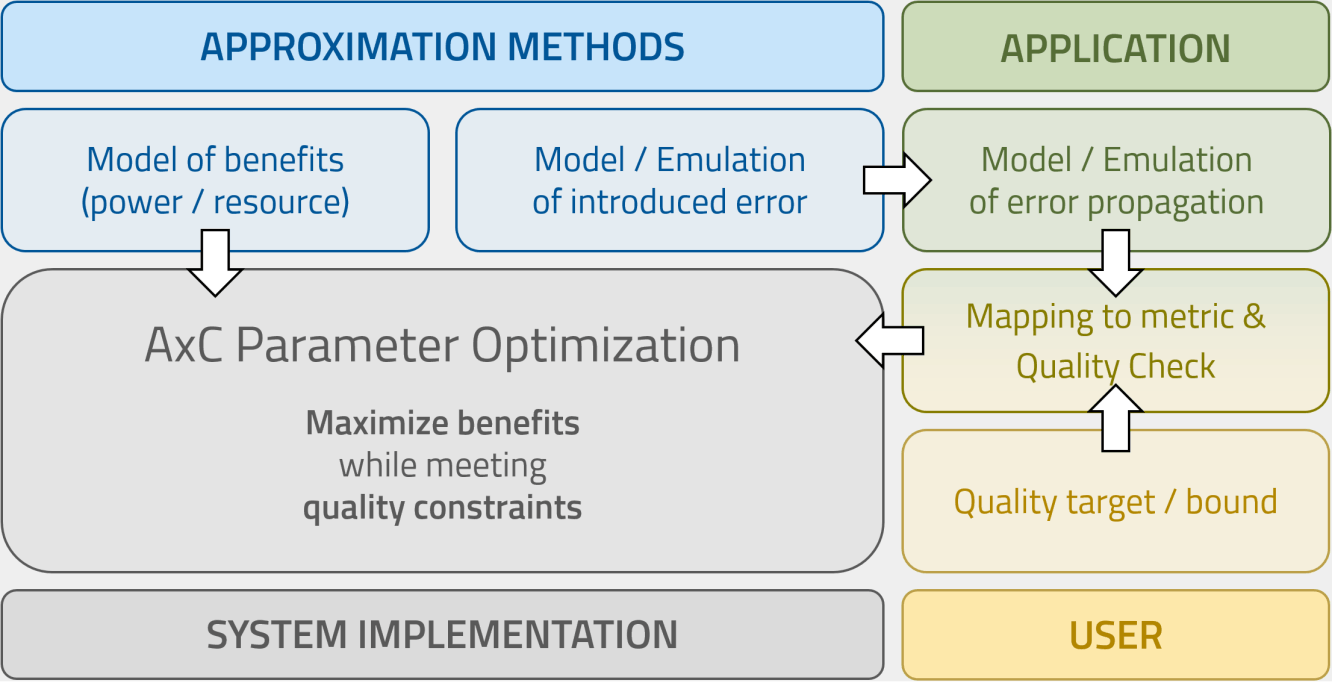A. Kreddig,
, M. Manuel and W. Stechele,
2021 24th Euromicro Conference on Digital System Design (DSD), 2021, pp. 1-8
N. A. Vu Doan, M. Manuel,
S. Conrady, A. Kreddig, W. Stechele,
Parameter Optimization of Approximate Image Processing Algorithms in FPGAs, 2020 Eighth International Symposium on Computing and Networking Workshops (CANDARW), 2020, pp. 74-80
(
Link)
M. Manuel, A. Kreddig,
S. Conrady, N. Anh Vu Doan and W. Stechele,
Model-Based Design Space Exploration for Approximate Image Processing on FPGA, 2020 IEEE Nordic Circuits and Systems Conference (NorCAS), 2020, pp. 1-7
(
Link)
2019
S. Conrady, M. Manuel, A. Kreddig, and W. Stechele. 2019.
LCS-based automatic configuration of approximate computing parameters for FPGA system designs. In Proceedings of the Genetic and Evolutionary Computation Conference Companion (GECCO '19)
(
Link)

